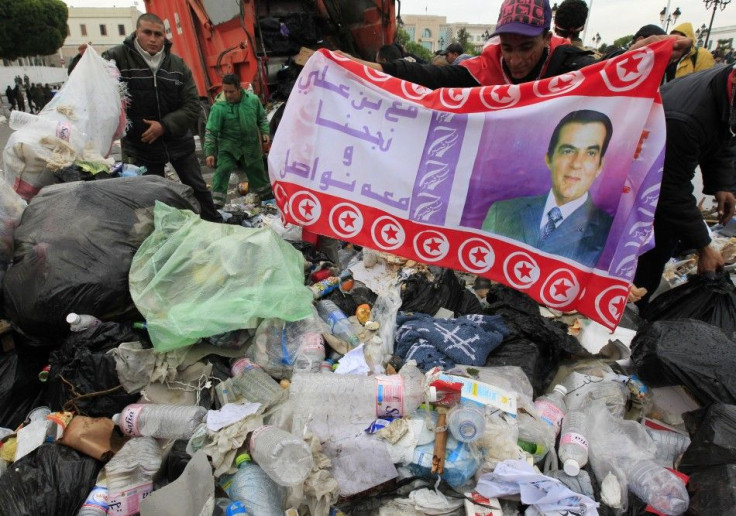It’s the Economy, Stupid (Even In the Middle East)
Column: The Middle East needs economic reform, maybe even more badly than political reform

The Middle East/North Africa revolt was started in the obscure Tunisian town of Sidi Bouzid by a fruit vendor named Mohamed Bouazizi.
One day, a government official confiscated his fruit scale. From past experience, he knew he had to pay a bribe to get it back. This time, Bouazizi wasn’t going to take it anymore.
He went to the governor’s office to demand the return of his property. When they wouldn’t let him in, he snapped. In an act of desperation, he drenched himself in gasoline and lit himself on fire in the middle of a busy street.
It was arguably this act of defiance that sparked a revolution in Sidi Bouzid, the rest of Tunisia, and now across the Middle East and North Africa.
In an interview with 60 Minutes, Bouazizi’s mother said her son was never political; he just wanted to make his $10 per day and send his sisters to college.
For many of the unemployed and poor youths in Tunisia, Bouazizi’s story resonated; his pains were felt by many in Tunisia and fueled the revolt.
Domestic revolutions (as opposed to revolution against foreign occupiers) are never purely about politics.
Centuries ago, Americans had their taxes and the French had their bread.
In the Middle East, it was about food inflation, staggering levels of unemployment, and economic corruption.
What Bouazizi experienced – the confiscation of his fruit scale to extract a bribe – was just one incident among many in a thoroughly corrupt regime headed by the former dictator, his wife and her family, who seemed to have had their hands in every corner of Tunisia’s business world.
In other Middle Eastern and North African countries, poverty was also an issue.
Contrastingly, in China, even though the regime is oppressive politically, an attempted revolution there in 2011 never gathered steam partly because the economy has been improving.
Even when Chinese people complain about the government, much of it is directed towards economic corruption.
In the aftermath of the ousting of Tunisia’s dictator Ben Ali, the country now has more political freedom and will hold elections in about six months.
The country’s young revolutionaries certainly cherish this freedom, but they now also want jobs.
Indeed, job hunting is what many of the former protestors are doing right now.
In an Al Jazeera interview, a Tunisian professor named Skander Ounaies said the number one priority of the new government should be to address the country's economic woes (see video below).
Ounaies advocated the “equal partition of wealth.”
However, modern history has shown that the best method of poverty reduction is not slicing the pie of wealth differently; rather, it’s making the overall pie bigger.
Booming Asian economies like China, South Korea, and Japan half a century ago are examples.
The Middle East revolutions have negatively affected the economy is some cases. Egypt’s multi-billion tourism industry, for example, took a huge hit. However, if revolutions get rid of economic corruption, it can attract foreign business.
Whatever the case, the new governments in the Middle East should learn from the mistakes of their failed predecessors; in addition to political reforms, they must work to create jobs and reduce poverty.
© Copyright IBTimes 2024. All rights reserved.





















